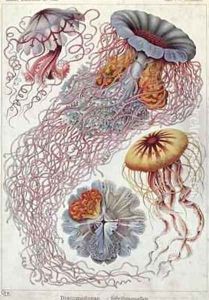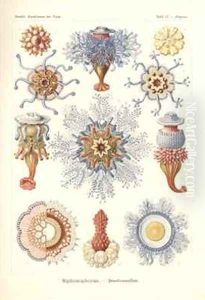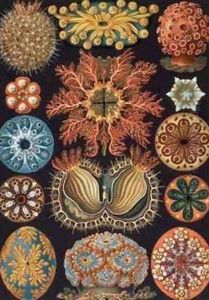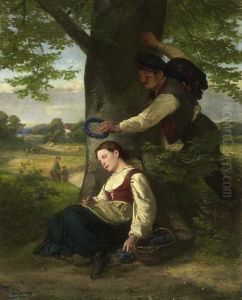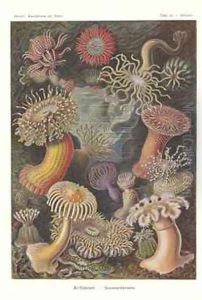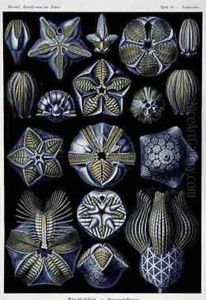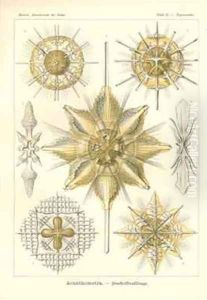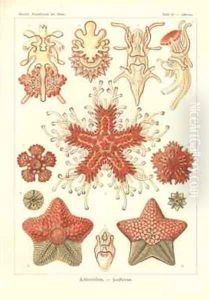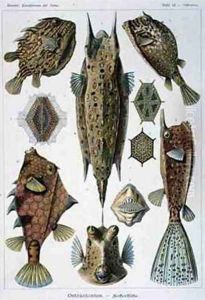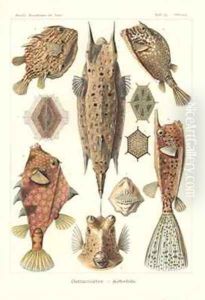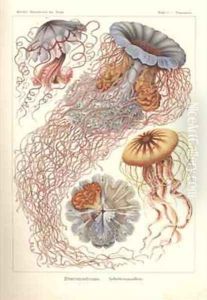Ernst Haeckel Paintings
Ernst Heinrich Philipp August Haeckel was a German biologist, naturalist, philosopher, physician, professor, and artist who made significant contributions to various fields, particularly the study of evolution and the taxonomy of sea creatures. Born on February 16, 1834, in Potsdam, Prussia (now Germany), Haeckel grew up in a time when the scientific world was buzzing with new discoveries and theories.
Haeckel studied medicine and science at the University of Würzburg and later at the University of Berlin. However, his interest in biological research led him to pursue a career in academia rather than medical practice. After receiving his doctorate in zoology at the University of Jena in 1857, he eventually became a professor there. Haeckel was deeply influenced by the work of Charles Darwin and was a strong proponent of the theory of evolution by natural selection, which he helped popularize in Germany.
Haeckel's own scientific work was groundbreaking in the field of marine biology. He embarked on several expeditions to study sea life, which led to the discovery of thousands of new species. His detailed drawings and sketches of these organisms were widely acclaimed for their intricate detail and aesthetic beauty. These illustrations were published in several volumes, such as 'Kunstformen der Natur' (Art Forms in Nature), which remains a significant work in both biological study and the arts.
He is also known for coining many biological terms, including 'ecology' and 'phylum'. Haeckel's 'biogenetic law', which posited that ontogeny recapitulates phylogeny, was once a popular concept but has since been discredited in its original form. Despite this, his contributions to embryology and our understanding of evolutionary relationships were valuable to the development of these scientific fields.
Haeckel was also a philosopher and wrote extensively on the relationship between science and religion. His monistic philosophy, which sought to bridge the gap between the two, was influential in the late 19th and early 20th centuries.
Ernst Haeckel passed away on August 9, 1919, in Jena, Germany. His legacy is multifaceted, having left a lasting impact on biology, ecology, and the visual arts. Haeckel's work continues to be studied and his artistic representations of nature admired for their precision and beauty.
